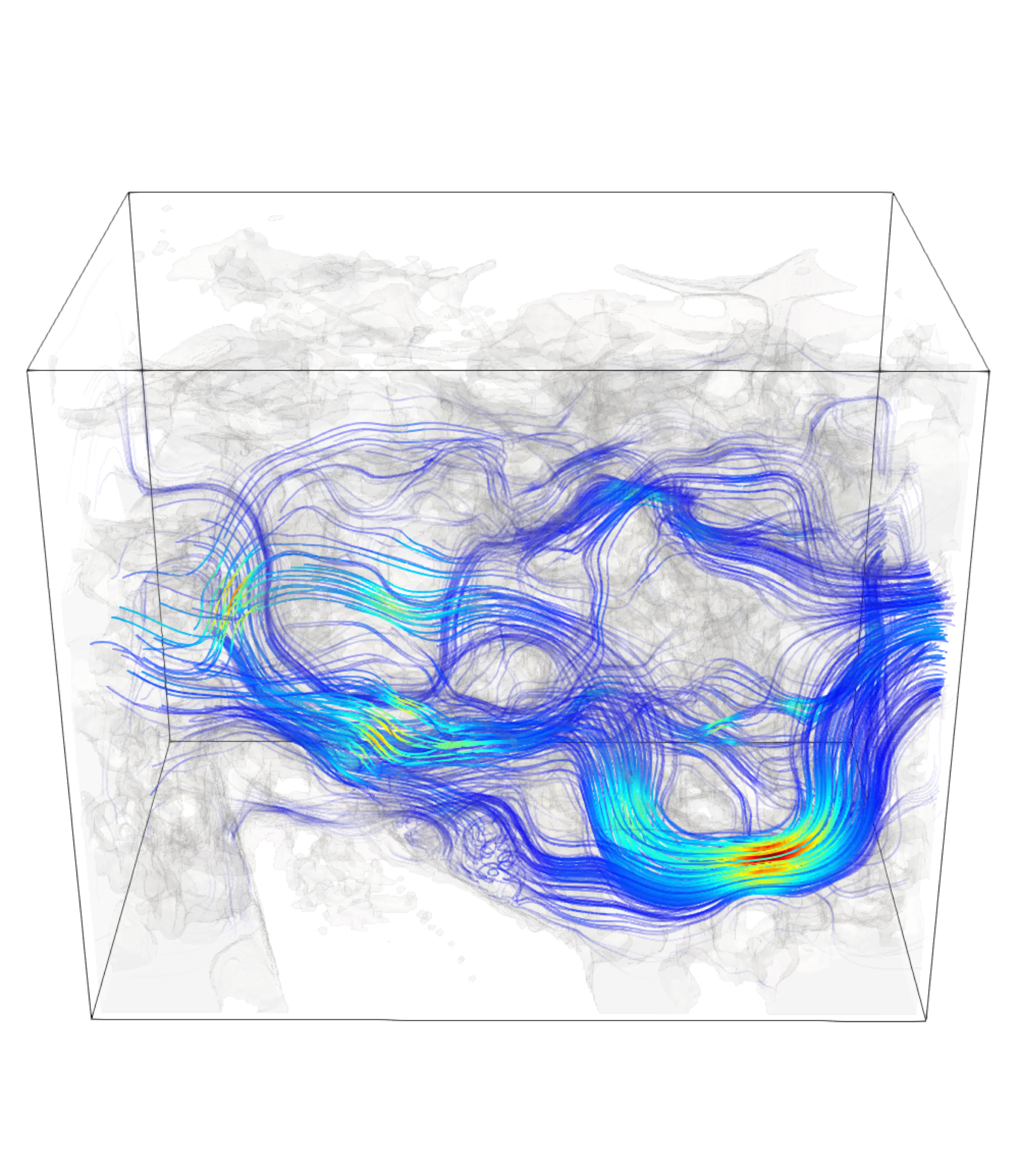The objective of the pore scale task was to identity mechanisms that influence fluid transport, chemical reactions, and oil recovery.

Task leader: Espen Jettestuen, research manager, NORCE (esje@norceresearch.no)
The main topics in this task was to study the behaviors of polymers and the effect of water chemistry on the strength and structure of the pore space.
In the project "Description of the Rheological Properties of Complex Fluids Based on the Kinetic Theory" kinetic theory was used to predict the polymer fluid rheology from the microscopic description of the polymer. This method has been used to consider salinity effects of the polymer. Journal publications on both topics are published. Project manager Dimitri Shogin was awarded a VISTA scholarship extending the project duration to 2022. Two PhD students joined the project. The experimental PhD, Siv Marie Åsen, started early 2018. The numerical PhD, Bjarte Hetland, started August 2018. See project description on VISTA's home page.
The PhD project "Experimental investigation of fluid chemistry effect on adhesive properties of calcite grains" studied the adhesion of calcite-calcite surfaces in different brines using atomic force microscopy and atomic force apparatus. These measurements techniques was extended to work on rough surfaces so that the adhesion force can also be studied as a function of surface topology. An article was published in "Langimur".
Numerical methods wee developed in the project "Micro Scale Simulation of Polymer Solutions" to study fluids with non-Newtonian rheology’s on the pore scale. The simulations was used to understand which polymer properties are important on the Darcy scale. The stability of the code was improved and can now handle viscosity ratios of 1000-5000. An article has been published in "Physics of Fluids".
The project "Pore scale simulation of multiphase flow in an evolving pore scale" used a lattice Boltzmann numerical method to study how pore space and wetting are affect by fluid chemistry and flow rates. This method was used on real chalk geometries previous acquired as part of the project. The numerical model has been updated with an improved phase-separation algorithm capable of handling dynamic wetting properties and used to simulate both spontaneous imbibition and relative permeability setups. The results have been presented at the EAGE 2018 Workshop in Copenhagen and EGU 2018 in Vienna.
1.3.1 Pore scale simulation of multiphase flow in an evolving pore scale (preliminary final report)
1.3.3 Micro-scale simulation of viscoelastic polymer solutions
1.3.4 Description of the rheological properties of complex fluids based on the kinetic theory (postdoc project by Dimitri Shogin)
1.3.5 Experimental investigation of fluid chemistry effect on adhesive properties of calcite grains (PhD project by Shaghayegh Javadi)
1.3.6 Development of a simulation tool for complex non-Newtonian fluid flow (PhD project by Bjarte Hetland – thesis expected in 2022)